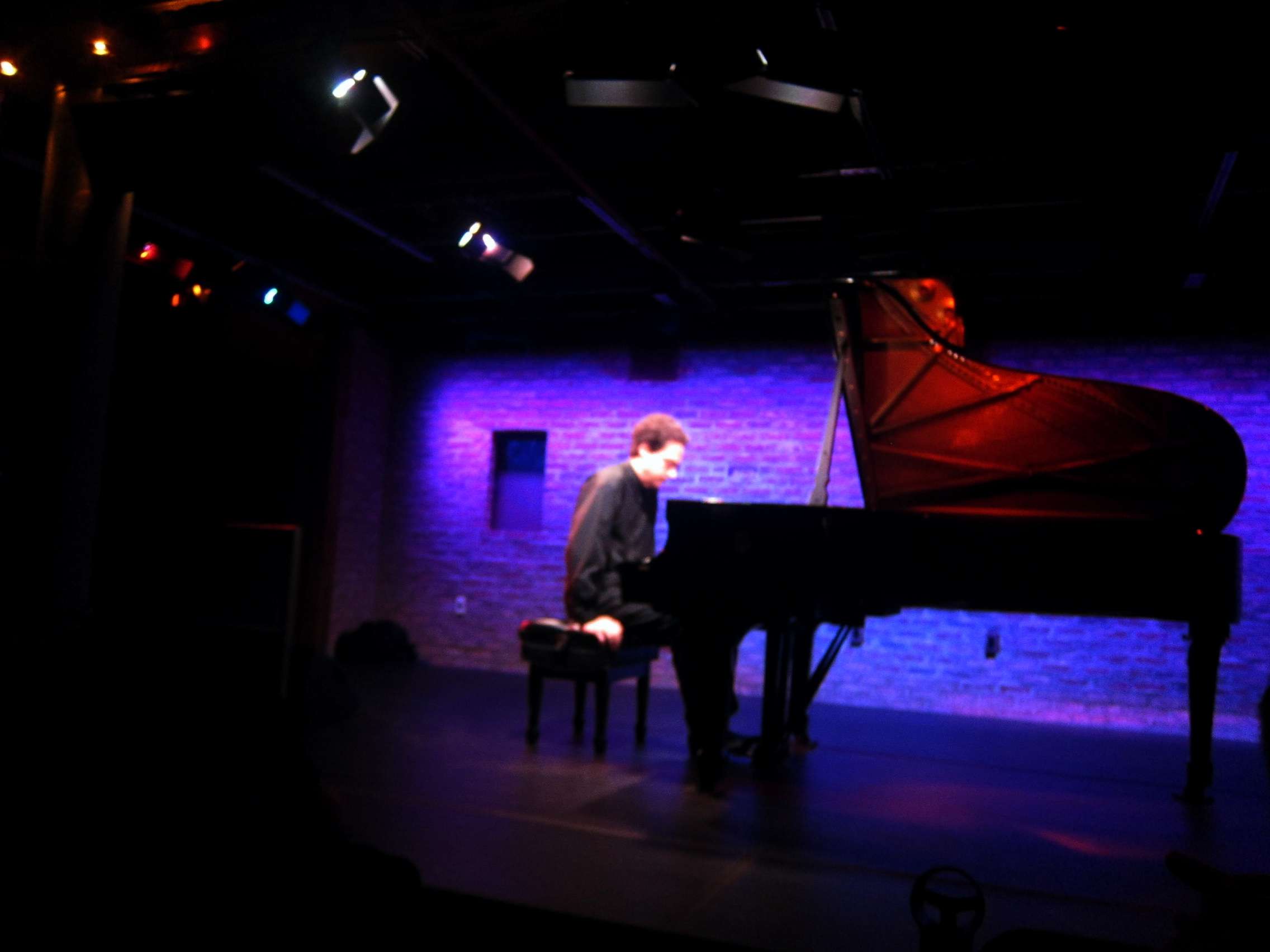|
Back
Shai Wosner’s Bliss Factor New York
SubCulture, 45 Bleeker Street
09/17/2013 -
First Annual SubCulture Piano Fest
Franz Schubert: Klavierstück in E-flat minor, D.946, No. 1 – Sonata in B-flat major, D. 960
Jörg Widmann Idyll and Abyss: Six Schubert Reminiscences
Shai Wosner (Pianist) 
S. Wosner at Subculture (© Coco T. Dog)
Shai Wosner is neither in the “Wow!” category or the artistically ideal category. Perhaps the best way to describe his stunning recital last night was to apply a phrase used by the confectionary industry. Mr. Wosner’s music begins and retains the “bliss factor.”
Food chemists often reach but can never prolong the momentary bliss factor. Mr. Wosner, in his two Schubert and one Schubert-channeled work achieved more than a fineness (not necessarily “finesse”) but the earthly bliss of a pianist having a youthful love affair with his music.
To begin with, SubCulture, a cellar seating about 150, with terrific acoustics and a congenial atmosphere, has been and still is used for jazz. But like Le Poisson Rouge, a block away, SubCulture is now so eclectic that it helps stamp Bleeker Street as an area of the most distinctive diversity.
Mr. Wosner wasn’t diverse, but his Schubert was so melodious that one didn’t need those contrasts. His opening piece seemed to float along until those sudden octave runs. I’d heard them played almost like glissandi, but Mr. Wosner let them take their individual turns. He took no liberties with the piece, but did allow a very long pause because the last section, and well worth it, so that both he and we could catch our breaths.
After the final note, the pianist didn’t even pause but went directly into the 21st Century Six Schubert Reminiscences.

J. Widmann(© Wikipedia Commons)
Above, I had mentioned the single “Schubert-channeled” piece, and this was the Idyll and Abyss by the wondrous Jörg Widmann. Widmann is not only one of the world’s great clarinetists, and marvelous composer, but his almost magical reworkings of other composers is singular. His works based on Schumann and Schubert seem to be by the composer, but are original...or rather, would have been by the composers, had the composers lived in our own century. (Berio actually did that with a “10th Schubert Symphony”.)
Widmann’s six-movement work last night didn’t quite fit that category. At times, it could be satiric, with a Schubert-style waltz straight out of Shostakovich’s Age of Gold, even including a few whistling bars by the pianist. At times, the music was mysterious, dreamy, seeming to take over a Schubert motif (not a theme), then dropping it. The B Flat Sonata was obviously the basis of the finale. Near-quotes from the first movement, then a clash in the bottom keys, though not Schubert’s pianissimo.
My main problem was personal. Mr. Widmann’s inspiration was so enchanting, so enigmatic and accessible at the same time, that I wanted to stop thinking as a reviewer, stop wondering which themes were original, which came from Schubert. In other words, I wanted to sit back without a thought in my mind except the music, forming a time-space continuum of its own.
Which I did. And probably missed some references. And I didn’t care because it was so carefully formed and so beautifully played by Mr. Wosner.
If the Klavierstück had been a prelude, the great B Flat Sonata, which had been quoted by Widmann, was like a Gargantuan postlude. One of my dream-wishes is that this Sonata had been “unfinished”, that later critics would say the first two movements were laden with such mysteries, such resonances of the unknown that Schubert was never able to complete it. But complete it he did, and the final two movements were as good as the unmysterious Schubert could do.
But oh, how that Andante sostenuto challenges any pianist. Mr. Wosner played with hidden fervor, allowing the echoes to be almost whispers, not taking any chances with the modulations but letting them take their own pace.
All four movements were played with both dedication and melodic intensity, and in the last movement, usually a gorgeous throwaway, he gave importance to those gawky syncopations, a nice touch.
Then again, this whole recital was surprising. In his previous New York recitals, he has proven himself a more than deft musician. In this setting, he proved that his modest bearing and his honestly beautiful tones are the makings of a superb artist.
Harry Rolnick
|